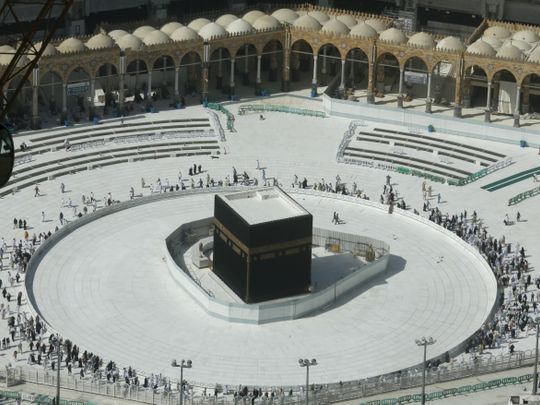
Cairo: A year after the outbreak of the coronavirus pandemic, Gulf countries have recently reintroduced restrictions to limit the spread of COVID-19 amid vigorous mass vaccinations. The latest curbs have been put in place due to an alarming surge in virus cases.
Fears of a further spike in infections during the upcoming Muslim holy month of Ramadan, traditionally associated with social gatherings, have prompted health authorities in the Gulf to toughen health rules.
The following piece features a retrospective of Year One of the coronavirus and explores what lies ahead in the relentless fight against the highly contagious ailment.
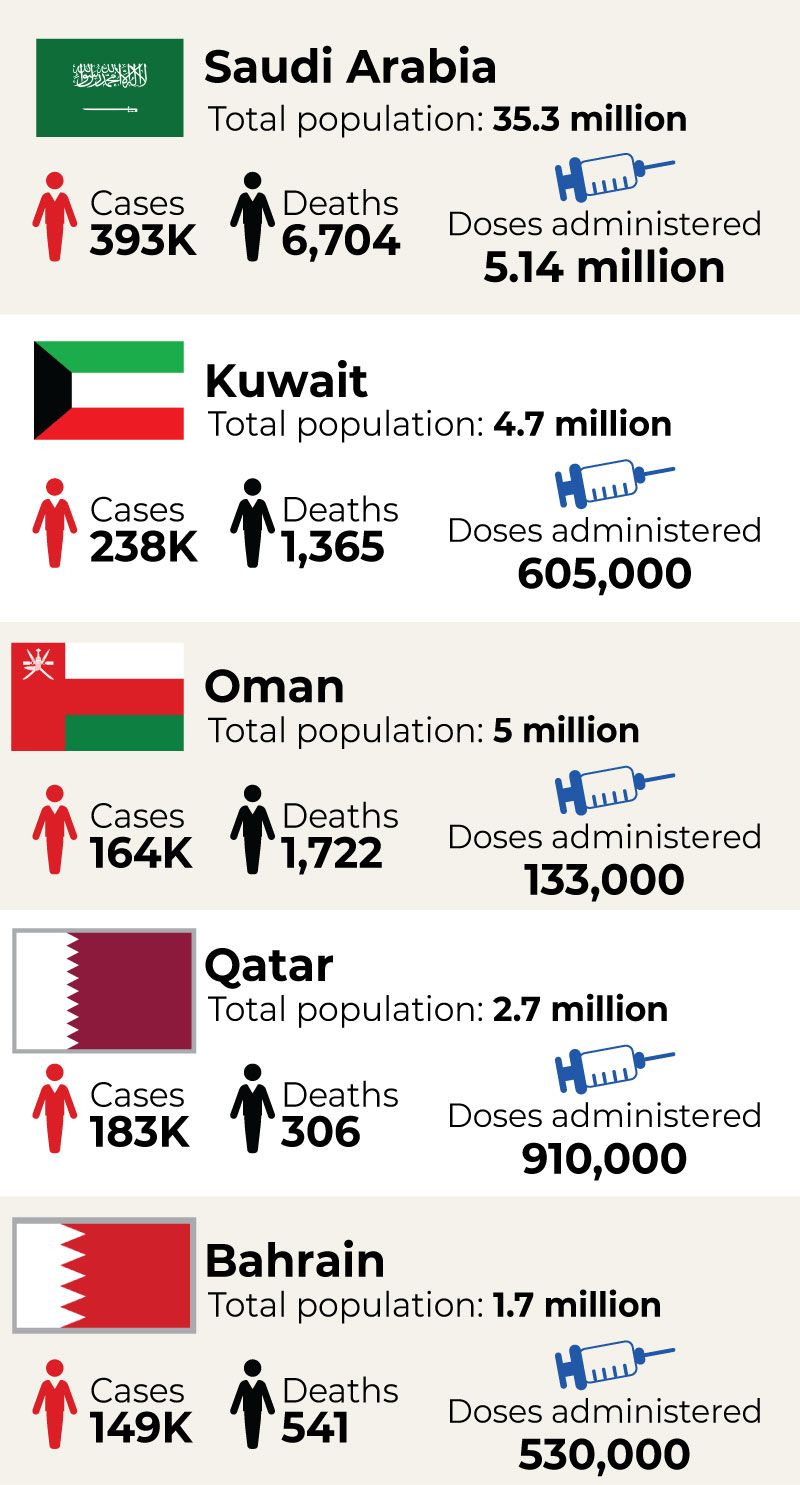
SAUDI ARABIA
As the pandemic hit the world, Saudi authorities rushed to enforce a string of measures to contain the spread of the coronavirus. They included suspending international and domestic flights.
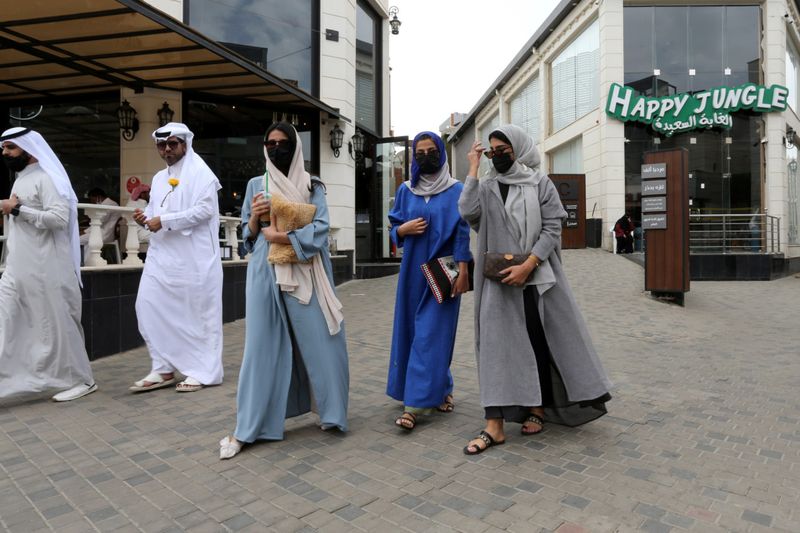
Temporary Umrah halt
Concerns over the spread of the virus also prompted Saudi authorities to suspend the Umrah or minor pilgrimage journeys made annually by millions of Muslims around the world, who mostly could not afford the Hajj costs.
The kingdom also suspended congregation prayers in all its mosques, including the Two Holy Mosques - the Grand Mosque in Mecca and the Prophet Mohammed’s mosque in Media.
As more cases were registered in the country, Saudi Arabia imposed in late March of last year a nighttime curfew and banned movement among its 13 regions.
Mosques reopened, Umrah resumed
The restrictions paid off. A downward trend was registered in the infection rates in Saudi Arabia, promoting authorities last May to reopen mosques amid strict health precautions.
However, authorities have recently closed dozens of mosques in several areas of Saudi Arabia after COVID-19 cases were detected among worshippers. In-person mosque lectures were also suspended in favour of online lessons as a precautionary measure against COVID-19.
In October, Saudi Arabia set into motion a plan for gradual resumption of the Umrah after suspension of around seven months. Likewise, stringent health rules were set for performing the Umrah.
The first phase of the plan, which began on October 4, allowed 6,000 Umrah pilgrims from inside the kingdom per day into the Grand Mosque in Mecca. The second went into effect on October 18, allowing about 40,000 worshippers and 10,000 pilgrims a day into the Grand Mosque. As many as 20,000 Umrah pilgrims and 60,000 worshipers per day are allowed to perform prayers at the mosque, according to the third phase that started in November.
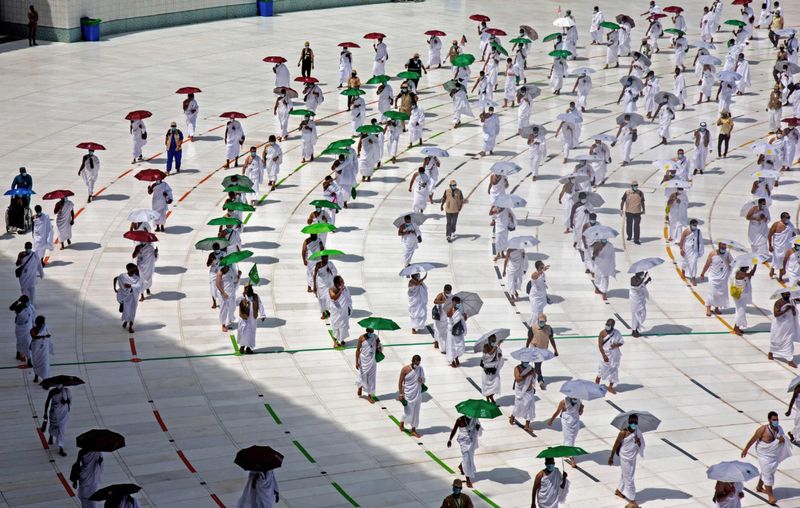
‘Immunised’ Umrah pilgrims
With Ramadan being just around the corner, usually peak time for the Umrah, Saudi authorities Monday announced that only “immunised” people against COVID-19 will be allowed to perform the Umrah and visit the Prophet’s Mosque starting from Ramadan 1. The Ministry of Hajj and Umrah has defined the eligible “immunised” worshippers as those who have received two doses of vaccination against COVID-19; those receiving a single dose of inoculation at least 14 days in advance; and those who have recovered from the virus infection.
Downsized Hajj
In June, Saudi Arabia announced that the Hajj, usually attended by over 2 million, would be held with a very limited number, confined to Saudis and non-Saudis of all nationalities who were already residing in the kingdom. The curtailment was aimed to curb the spread of COVID-19.
Seventy per cent of the selected pilgrims were expatriate residents while the remaining 30 per cent were Saudi citizens. The expatriates, who applied to attend the Hajj rituals, had to meet certain health conditions to be eligible pilgrims. They had to be free of chronic diseases, and provide a negative coronavirus-detecting PCR test result. Moreover, the applicants should not have previously performed the Hajj, be aged between 20 to 50 years, and signed a written consent to undergo quarantine before and after performing the Hajj.
The 30 per cent others were Saudi health practitioners and security men, who had recovered from COVID-19. They were picked in recognition of their role during the battle against the virus, provided they meet the health criteria set for other pilgrims.
As part of tough health measures adopted during last year’s Hajj each pilgrim was given a bag containing a protective face mask, a shaving instrument, personal care tools, sterilised ritual stones, a toothpick, an umbrella and a prayer rug. The pilgrims had to observe distancing and using the sterilised pebbles in performing a symbolic devil-stoning ritual.
Saudi authorities later announced that no infectious case, including the coronavirus, had been detected among the pilgrims.
Temporary flight ban
Last February, Saudi authorities imposed new restrictions against the COVID-19 spread including a temporary ban on flights from 20 countries. Exempted from the ban are diplomats, Saudi citizens, medical practitioners and their families.
Moreover, authorities enforced a month-long suspension of entertainment activities, as well as closure of cinemas, indoor entertainment centres and independent indoor games sites or those in restaurants, and shopping malls as well as gyms and sports facilities. Indoor orders at restaurants and coffee shops were suspended for the same duration, with services of those facilities confined to takeaway orders. The following month, the restrictions were eased, allowing the reopening of cinemas, gyms and sports centres.
Decline in infection rates
Saudi Arabia initiated mass vaccinations against COVID-10 on December 17. Around 5.14 million doses have since been administered amid a noticeable drop in daily infection rates registered in the country. Saudi authorities so far have reported a total of 393,377 virus cases and 6,704 fatalities.
KUWAIT
Early precautions imposed by Kuwait against COVID-19 included a halt to flights with the outside world and closure of all educational institutions and restriction commercial activities. Over the past months, Kuwait has on several occasions enforced health curfews in an effort to curb the spread of the disease.
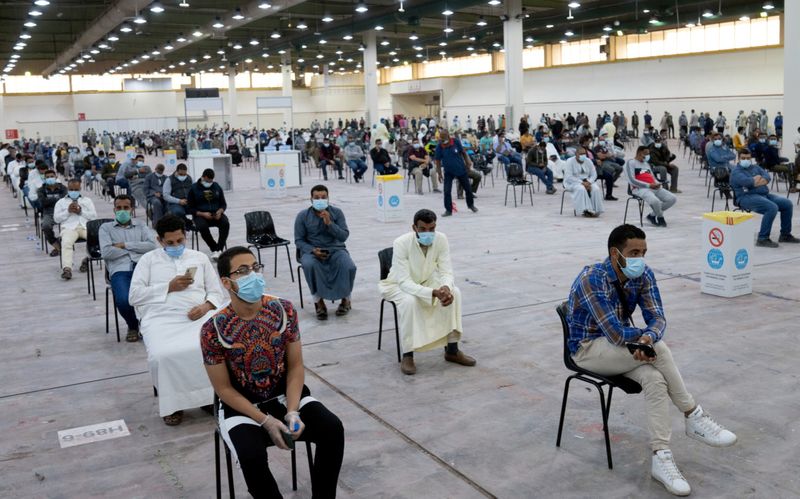
Airport reopened, partial flight ban enforced
Last August, authorities reopened the Kuwait International Airport after a halt of more than five months as part of a gradual reoperation plan. However, on the same day of the airport’s reopening, Kuwait announced banning flights with an immediate effect from 31 “high-risk” countries, citing concerns over COVID-19 spread.
Ban on non-Kuwaitis’ entry
A spike in daily infection rates in the country prompted authorities last February to impose a ban on non-Kuwaitis’ entry that has recently been extended. Starting from February 21, Kuwait introduced mandatory seven-day hotel quarantine for all passengers – citizens and foreigners - arriving in Kuwait at their expense to curb the spread of COVID-19. Upon the end of the institutional quarantine period, passengers will have to undergo domestic quarantine for seven more days.
Curfew extended into Ramadan
Last week, the Kuwaiti government extended a partial curfew, imposed last month to curb COVID-19 infections, until April 22, which coincides with the month of Ramadan. The curfew was due to end on April 8. But the government said the curfew will be extended from April 8 to April 22, while curtailing the curfew hours. During the extension period, the curfew will continue daily from 7pm until 5am.
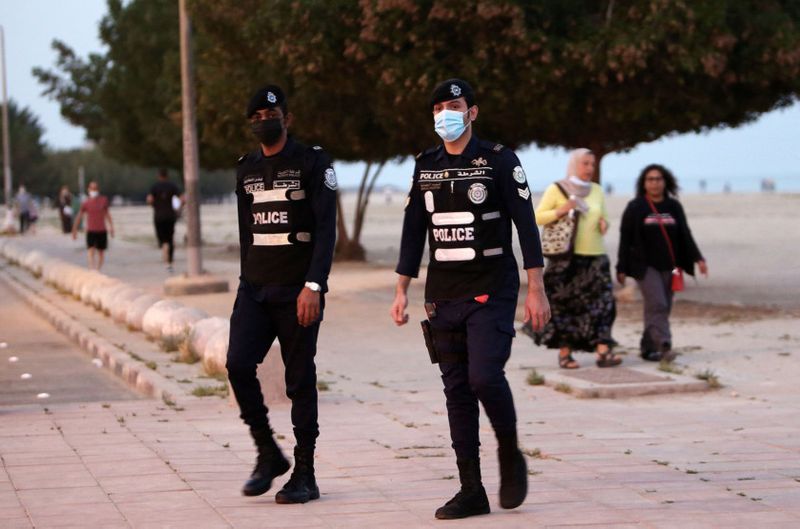
During the curfew time, people will be allowed three hours for walking in residential areas only without the use of cars daily from 7pm to 10pm. Moreover, the delivery services by restaurants, coffee houses and shopping centres will be allowed daily from 7pm till 3am.
Speeding up vaccinations as infections rise
Like other Gulf countries, Kuwait kicked off vaccinations against COVID-19 in December. Despite the inoculation campaign and the stringent virus-related restrictions, an uptick in infections continues to be registered in the country. Authorities so far have recorded a tally of 238,549 cases and 1,365 deaths.
The surge, according to observers, is attributed to laxity in observing health rules as well as prioritisation of administering the vaccine to citizens in a country where expatriates make up around 70 per cent of the overall population of 4.7 million.
Worker-geared inoculation
In an attempt to bring the situation under control, Kuwait reportedly plans to start a large vaccination drive against COVID-19 for workers in different commercial activities having direct contacts with the general public. The would-be recipients are workers at salons, health clubs, restaurants, cooperative societies, malls, and commercial centres as well as recreational facilities.
2.8 million to be vaccinated by year-end
This week, Kuwaiti Minister of Health Dr Basel Al Sabah said that around 2.8 million people are expected to get vaccinated by the end of this year. Nearly 605,000 doses of the vaccines have been so far administered in Kuwait.
OMAN
In March of last year, Oman adopted a raft of measures to contain the spread of COVID-19. They included temporary suspension of flights, shutting down educational institutions, stopping issuance of tourist entry visas and banning sports activities. Authorities have since imposed several partial curfews depending on the infection situation.
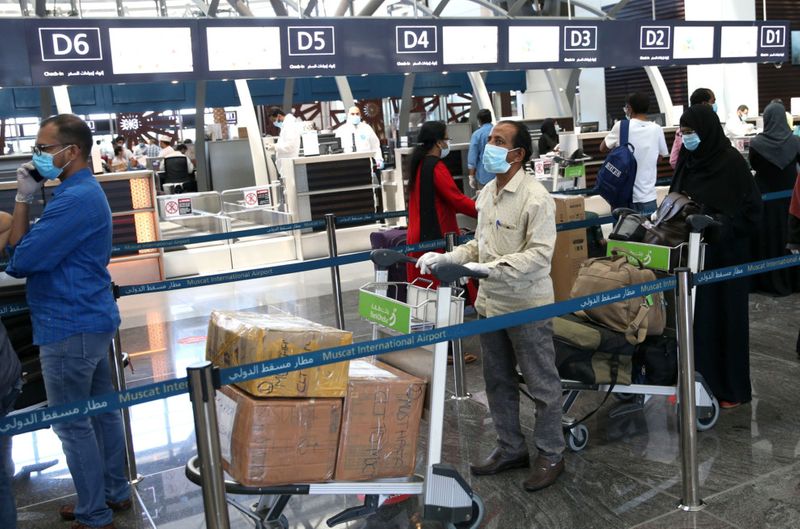
Temporary easing of restrictions
As the infections went downward, authorities eased restrictions and allowed several economic activities to reopen last December. They included issuance of tourist visas, reopening of cinemas, museums, restaurants in shopping malls, beaches, gardens, health clubs, nurseries as well as kindergartens, amusement game halls and change rooms.
At the time, Oman’s Supreme Committee in charge of tackling COVID-19 also decided to end downsizing employee attendance at government offices, reinstating full reporting to workplaces starting from December 6.
Borders reopened
The country also reopened its land, air and sea borders on December 27 after they were closed for one week to stem the spread of a new variant of the coronavirus. The committee also reinstated mandatory coronavirus-detecting PCR testing for all passengers arriving in the country.
On February 7, the Omani authorities extended until further notice the closure of the sultanate’s land borders that has been in place since January 17 in an attempt to reverse an upward infection trend.
To the same end, restaurants and coffee shops were ordered to operate at 50 per cent of their capacity as public parks and beaches were shut down.
On March 28, Oman imposed a partial curfew after the daily infection rates surpassed 1,000.
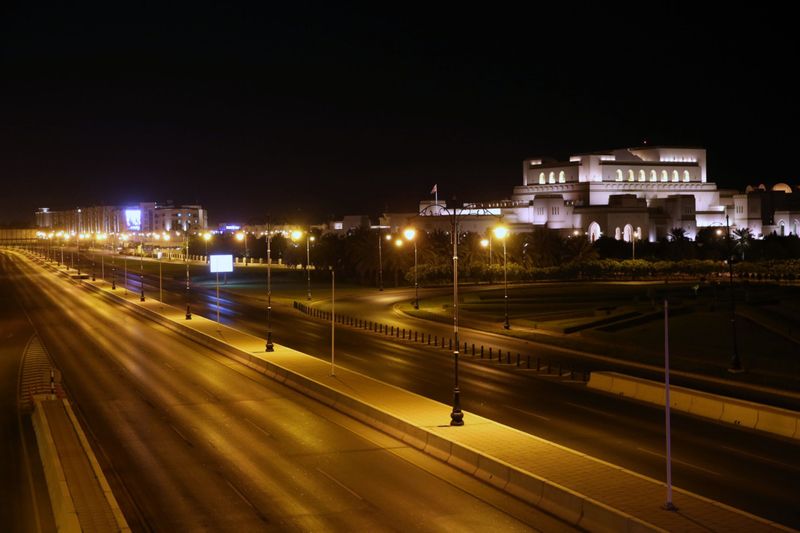
Ramadan curfew as infections surge
On Monday, the panel in charge of tackling COVID-19 said that starting from April 8 only citizens and foreign residents will be allowed to enter Oman until further notice. The committee also said that a nighttime curfew will go in force during the month of Ramadan expected to start on April 13. The ban on movement of people and vehicles, in force since March 28, will be lifted as scheduled on April 8, i.e. five days before a 9pm-4am curfew takes effect from the start of Ramadan.
As part of the latest virus-related curbs, a ban has been imposed on Tarawih congregational prayers in mosques, a voluntary nightly ritual of Ramadan. Moreover, the panel announced banning all types of gatherings, including social, sports and cultural activities, during Ramadan.
Infection & inoculation update
Oman, a country of nearly 5 million people, so far has recorded a total of 164,274 virus cases and 1,722 deaths. The country launched mass vaccinations against COVID-19 in December. Nearly 133,000 doses of the vaccine have so far been administered in the country.
QATAR
In March 2020, Qatari authorities announced a temporary ban on the entry of nationals of 15 countries due to concerns over the spread of the COVID-19.
The country also downsized operation capacity of public facilities. By the mid of last year, authorities started to ease restrictions as part of a plan for gradual return to normal life.
In October, Qatar scrapped a system giving students the choice between class attendance and online learning.
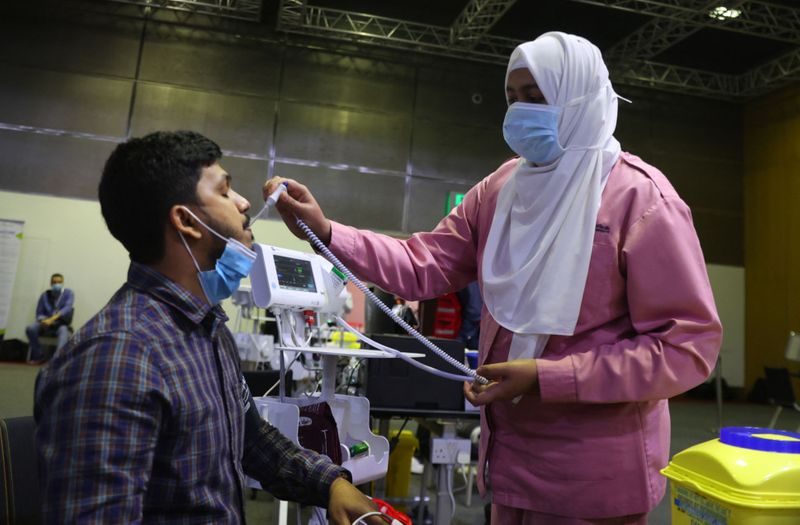
Starting from November 1, authorities made school attendance mandatory and started applying a system combining alternate school attendance and distance learning. At the time, average attendance was set for 42 per cent of the overall capacity at each school.
Later, education authorities decided to increase school attendance in Qatar to reach 50 per cent of the total capacity of education institutions in the second semester that began in January. Authorities also decided to alternately apply an education system blending class attendance and online learning. According to this system, 50 per cent of the school students are required to attend the class for one week and get distance learning during the following week.
New restrictions in place
However, an alarming spike in infection rates in the country has prompted a rethink. Alarmed by the appearance of new strains of COVID-19, Qatar last December said that arrivals from four countries including Britain have to go into mandatory quarantine. The Health Ministry said that due to the emergence of the new virus strain in Britain, South Africa, the Netherlands and Denmark, passengers arriving from the four countries have to be placed under mandatory quarantine.
Class attendance suspended
Starting from April 4, Qatar suspended in-person attendance in all universities, schools and kindergartens. As a result, educational institutions have switched to distance learning.
Earlier this month, all non-emergency medical services were suspended in Qatar as part of curbs against coronavirus.
Likewise, authorities announced closing recreational centres and reducing capacity of shopping centres to 30 per cent and restricting the service of restaurants inside them to outdoor orders.
As part of the latest curbs, the capacity of public markets has been cut down to 30 per cent of the normal capacity. Meanwhile, persons under 18 years old are not allowed into cinemas, the capacity of which is reduced to 20 per cent of the usual capacity.
Theatrical shows are banned without approval of the Health Ministry.
Age limit eased for vaccination
In an effort to encourage registering for getting inoculation against COVID-19, the Health Ministry said that people aged 40 and above are eligible to receive the vaccine regardless of their health conditions.
Over 910,000 doses of vaccines against COVID-19 have been administered in Qatar, a country of about 2.7 million people. Health authorities so far have confirmed a total of 183,334 virus cases and 306 fatalities.
Stark warning
A noted Qatari medical professional has recently warned against a further spike in the virus cases, citing a significant increase in the number of COVID-19 patients at intensive care units (ICUs).
“Last February, there were 53 ICU cases. Now there are more than 300 cases. This is a difficult comparison,” Dr Ahmed Al Mohammed, the acting head of the ICU department at the Hamad Medical Foundation, said. “Even at the peak of the first wave [of the pandemic], figures were not that high,” he told Qatar television.
He blamed lack of complying with health precautions for the alarming rates and urged imposing a total lockdown for two or three weeks.
BAHRAIN
After it confirmed the first coronavirus case in a Bahraini national coming from Iran in late February last year, Bahrain embarked on applying a set of precautions against COVID-19. They included temporary suspension of flights from several countries.
Other measures included close cinemas, coffee shops, saloons gyms, swimming pools and exercising centres as well as suspending non-emergency services at private medical centres. Services of restaurants and cafeterias were confined to outdoor orders.
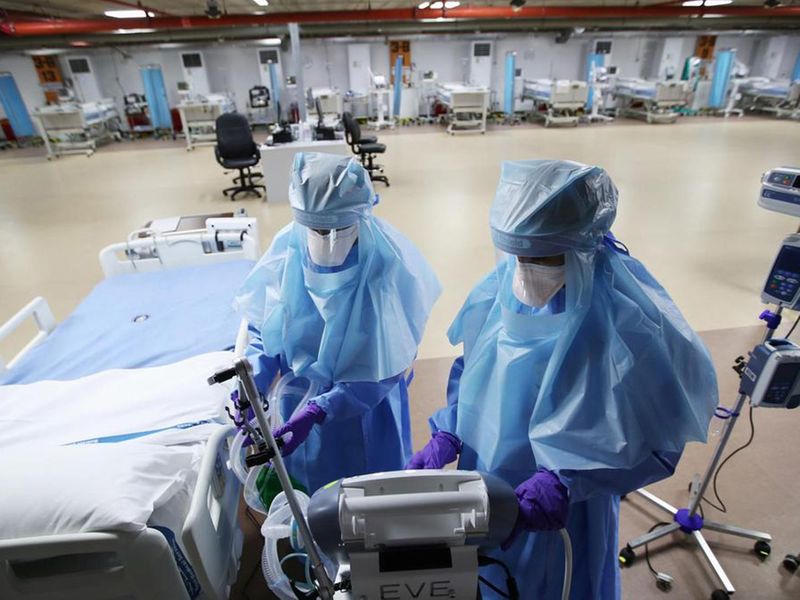
In an attempt to ensure early detection of coronavirus cases, a drive-through testing was provided at the Bahrain International Convention Centre. The government also encouraged work from home. Wearing face-masks in public places became mandatory. In late March, Bahrain closed mosques as a preventive measure against the disease.
Gradual mosque reopening
In August, authorities allowed the gradual reopening of mosques in the kingdom. The reopening had previously postponed for several times due to a spike in virus cases. Authorities also allowed the return of students on an optional basis to their classrooms in public schools on October 25 amid stringent health precautions. Nurseries also reopened amid strict preventive measures including daily sterilisation of their buildings, and employment of a nurse in the nursery accommodating 100 children and above. Birthday parties and other ceremonies were banned in the nurseries.
New Year festivity scrapped
As a preventive step, Bahraini tourism authorities cancelled in late December a firework display celebrating the New Year to avoid crowding.
In late January, Bahrain temporarily suspended classes in public and private schools as well as universities and kindergartens, with shift to remote learning.
A state taskforce team in charge of tackling COVID-19 in the kingdom also announced suspending indoor services at restaurants and coffee shops for three weeks beginning January 31 for the same reason.
The measures were taken after the mutated virus was discovered in a number of infection cases in the kingdom.
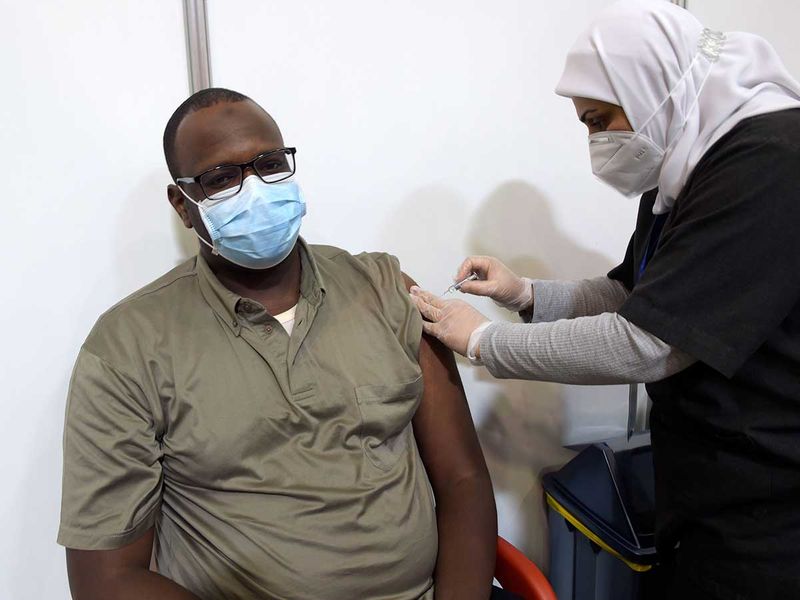
Virus-detecting testing expanded
As of February 22, Bahrain introduced one more coronavirus-detecting test for arrivals in the country and cut testing fees as part of efforts to limit the spread of the disease.
The country’s national taskforce team in charge of tackling COVID-19 said that all arrivals - citizens and foreigners - will continue to undergo PCR testing upon arrival at Bahrain’s entry points.
In a new measure, all passengers have to undergo a second test five days after arrival. A third test is conducted 10 days after arrival. The total fees of the three tests were reduced to BD36.
Last December, Bahrain cut the fees of the two tests, conducted for the passenger on arrival and 10 days later, to BD40 instead of 60.
On December 17, the kingdom launched mass vaccinations against COVID-19 for
an envisaged total of 1.5 million people including citizens and Bahrainis.
Over 530,000 doses have since been administered.
Bahrain, a country of about 1.7 million people, so far has recorded a total of 149,791 virus cases and 541 deaths.








